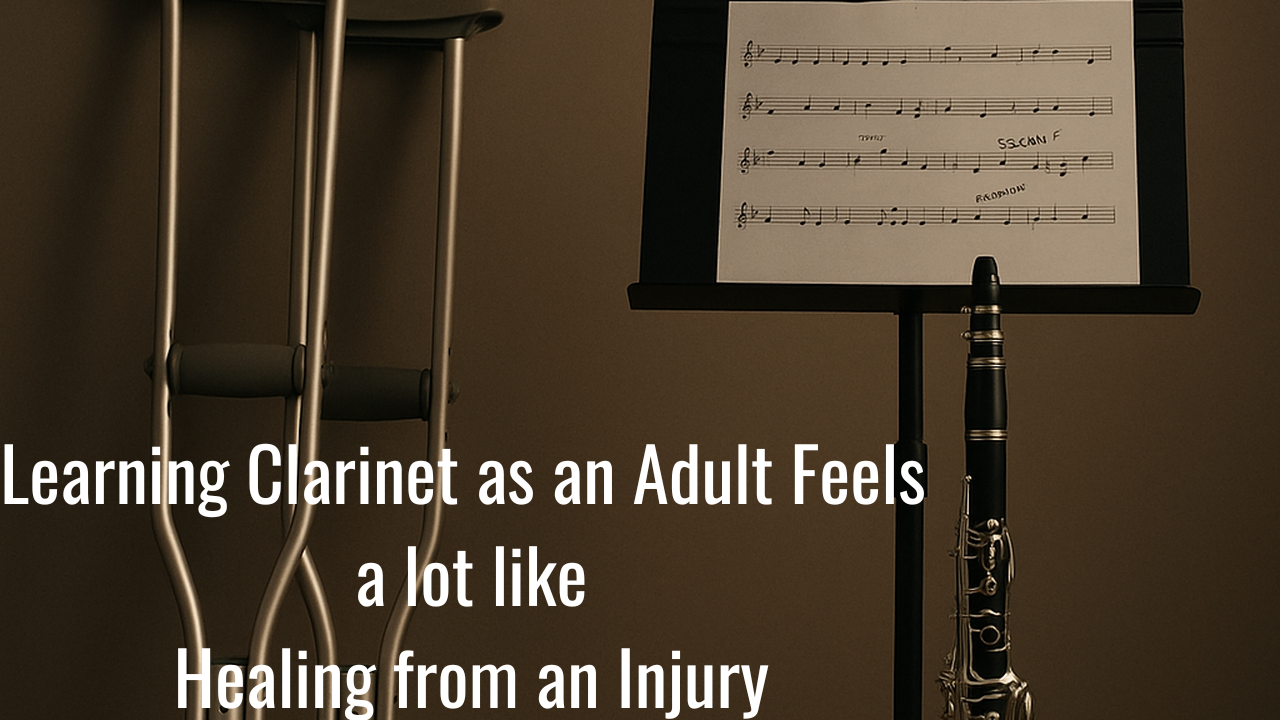What a Broken Foot Taught Me About Learning the Clarinet as an Adult
May 14, 2025
A month ago, I broke my foot.
What followed was an exhausting mix of pain, limited mobility, endless logistics, insurance uncertainty, and the mental weight of wondering how long it would take to feel normal again. It forced me to slow down. It made me depend on others. And it challenged my identity—I couldn’t move the way I was used to. I felt off balance in every way.
And somewhere in the middle of all that, I realized: this is exactly how adult clarinet students often feel.
It may sound strange, but hear me out—there are some powerful similarities between healing from an injury and learning the clarinet as an adult.
1. You Lose Control—and That’s Scary
When I broke my foot, I couldn’t trust my own body to do basic things like walk or stand. That loss of control was deeply unsettling.
Adult beginners often tell me the same thing: “I’m used to being good at things.” Picking up the clarinet can feel like losing control of your breath, fingers, and sound. It’s humbling. And sometimes, downright scary.
2. Insecurity Creeps In
Not being able to get around easily made me feel vulnerable. I had to rely on others. I worried about the cost, the timeline, and whether I’d ever move the same way again.
Sound familiar?
Adults learning the clarinet worry about sounding bad, making mistakes, or falling behind. There’s often a deep fear of “what if I’m not good enough?” That vulnerability is very real.
3. You Have to Be Patient with the Process
Healing from an injury isn’t linear. One day you feel great, the next you’re icing your foot after doing too much. It’s frustrating. But pushing harder doesn't necessarily make it better—it just sets you back.
Learning the clarinet is the same. Some days the notes flow, other days you squeak your way through scales. Progress isn’t always obvious. But it’s happening—if you give it the time and patience it deserves.
4. You Can’t Do It Alone
Crutches. Friends. Physical therapy. Emotional support. I needed all of it.
Clarinet students often try to go it alone, but this journey is smoother (and more fun!) with a guide and a community. Encouragement matters. Accountability helps. You're not meant to do this by yourself.
5. You Rebuild Something Stronger
Eventually, your body heals—but not quite the same as before. You gain strength, awareness, and a deeper appreciation for what you can do.
Learning the clarinet as an adult might feel awkward at first, but what emerges over time is something beautiful: resilience, musicality, joy. You’re not just rebuilding skills—you’re building confidence, creativity, and courage.
Learning the clarinet isn’t just about making music. It’s about meeting yourself with patience and compassion, especially when it feels hard or uncertain.
So if you’ve ever felt clumsy, stuck, or self-conscious in your musical journey—know that you’re not alone. You’re not broken. You’re just in the middle of building something new.
And I promise—it’s worth it.
